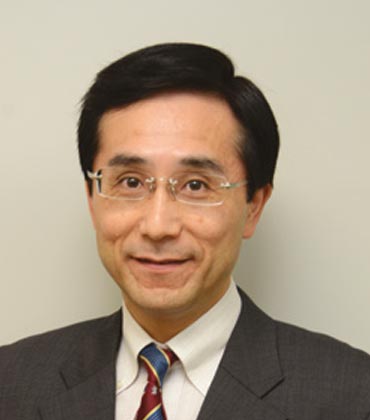The high quality of its nonwoven fabric is achieved through melt-blowing, a method where the polymer is melted and extruded through a small nozzle, then blown with high-velocity hot air to produce microfibers. These microfibers are then laid down in a random web pattern and self-bonded to form a nonwoven fabric.
“Our melt-blowing process is a clean manufacturing method that produces nonwoven fabrics with excellent filtration, absorption, and barrier properties,” says Yoshihiro Sato, president of Tapyrus.
The fine fibers used for these fabrics have an average diameter ranging from 2 to 10 μm, but Tapyrus, with its extensive research, can control the diameter over a broad range of 0.3 to 50 μm or more.
Physical properties like fiber diameter, base weight, thickness, air permeability, and texture are carefully designed and developed to cater to specific customer requirements. This enables the production of top-notch, high-performance products.
The meticulous design and development of the properties of Tapyrus’ separators have led to a new product, which is widely used by many users in Japan and overseas as a separator for lithium batteries and electric double-layer capacitors (EDLC).
These separators boast a thin fiber and small pore size, which helps prevent electrode short circuits. In addition, their high porosity enables good electrolyte retention. These features ensure the separators are top-notch and high-performance.
Tapyrus’s separators are highly customizable in thickness, with various adjustment options from 0.02mm (20μm) to 1mm. This makes them suitable for many battery types, as the thickness can be adjusted depending on the battery’s requirements.
Our melt blowing process is a clean manufacturing method that produces nonwoven fabrics with excellent filtration, absorption, and barrier properties
Recently, a battery manufacturer encountered an internal short circuit issue when using a separator manufactured by another company. Tapyrus examined the client’s situation meticulously, investigated the cause of the problem, and proposed various separator-based solutions that could resolve the issue. By redesigning the separator’s structure and incorporating specific features while maintaining the original battery performance, Tapyrus successfully resolved the issue.
Tapyrus is dedicated to creating top-notch customer-centric products that deliver superior performance. It has secured ISO 9001 and ISO 14001 certifications and takes an active approach to chemical substance-related surveys. Apart from that, its manufacturing plant in Thailand is currently pursuing ISO 14001 while having already obtained ISO 9001 certification.
Moving forward, Tapyrus is developing ultrafine fibers with an average diameter of less than 0.3 μm, comparable to electro-spun nanofibers. The enterprise is also focused on developing new battery separators that match the components of each battery design by studying new materials, thinning, hydrophilicity, and heat-resistant coatings to achieve environmentally friendly and high-performing products. In addition, Tapyrus is developing biopolymer nonwoven fabrics using biomass and biodegradable polymers as raw materials to achieve the same level of performance as existing products.
Tapyrus recognizes its responsibility to achieve a sustainable society by creating new values and contributing to solving critical issues. Its mission is to contribute to the development of society through sustainable growth while creating new value.
Thank you for Subscribing to Energy Business Review Weekly Brief
I agree We use cookies on this website to enhance your user experience. By clicking any link on this page you are giving your consent for us to set cookies. More info
